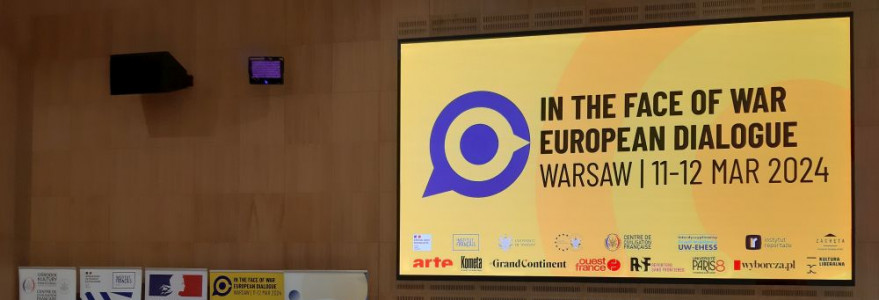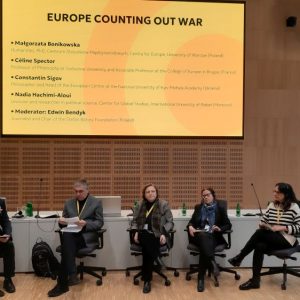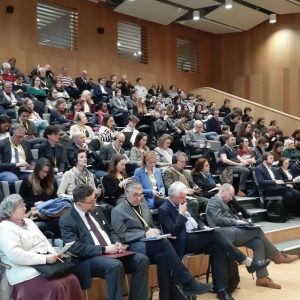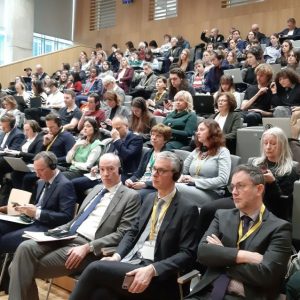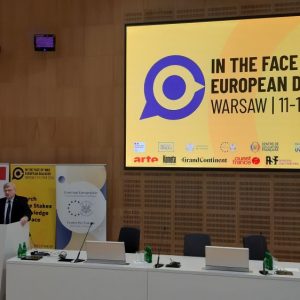On 11th and 12th March, the University of Warsaw hosted the “European Dialogue” –international debates on war and Europe. The key subject discussed during this year’s meetings was the war in Ukraine and its consequences for the world order as well as scientific research.
“Since the beginning of the Russian aggression against Ukraine, the University of Warsaw has stood on the side of Ukraine. The next day after the fighting began, the Rector’s Team was established at the University to coordinate assistance for the representatives of the Ukrainian scientific community and for Ukrainian students, including those residing in Poland,” Prof. Zygmunt Lalak, the UW Vice-Rector for Research, said at the inauguration of the debates, which took place on 11th March in the building of the UW’s faculties of Modern Languages and Applied Linguistics.
Dr Kamil Zajączkowski, the Director of the UW’s Centre for Europe, also referred to the origins of Russia’s armed assault on Ukraine, “From the very beginning of the war in Ukraine, I have been telling students, including those from the global south, that the war in Ukraine is not a local military invasion. It is the war for a new shape of the international order. I am glad that today, after two years, we can meet and discuss what it entails and what consequences it will have for the international order.”
The meeting launching the debates was attended by Prof. Zygmunt Lalak, the UW Vice-Rector for Research, Etienne de Poncins, the Ambassador of France, Prof. Andrzej Szeptycki, the Undersecretary of State in the Ministry of Science and Higher Education, and Aurélien Lechevallier, the Director General for Globalisation at the French Ministry of Foreign Affairs (Fr.: Ministère de l’Europe et des Affaires étrangères).
In 2022, the French Institute in Paris launched a series of public debates entitled “In the Face of War – European Dialogue”. This year, the University of Warsaw hosted some of the meetings.
The debate addressed the disruption that the war in Ukraine has caused to the acquisition and dissemination of knowledge and information. Participants discussed what part of history the countries of Europe share, what narratives on the European integration were present in Riga, Madrid, Sarajevo or Dublin, and what historical figures and events emerged in discussions about Europe.
The debates had an international character, with approximately thirty experts from Europe taking part. This year’s “European Dialogue” was organised by the French Institute and units of the University of Warsaw: the Centre for French Culture and Francophone Studies, the Centre for Europe, and the Interdisciplinary Team for Cooperation UW–EHESS.
The meetings took place in the UW’s building at Dobra 55 (ground floor, auditorium 0.410). The event was open to all interested parties and were translated into three languages: Polish, French and English.



